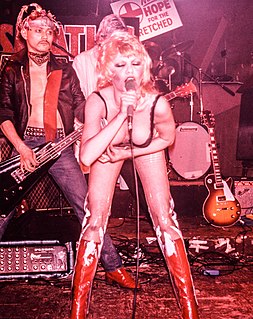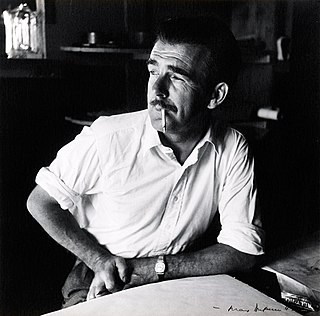A Quote by Charles Bukowski
They, all of them, seemed to put literary form in front of the actuality and living of life itself.
Related Quotes
It is thought that the virus is a degeneration from a more complex life form. It may at one time have been capable of independent life. Now has fallen to the borderline between living and dead matter. It can exhibit living qualities only in a host, by using the life of another-the renunciation of life itself, a falling towards inorganic, inflexible machine, towards dead matter
On a spectrum of literary productions, memoir is just another form. If the person doing the reviewing or critiquing was ill-educated about literary forms, they could write something dunderheaded about the author or their life (I've seen these and barfed at them), but anyone who is well-practiced and educated in literature - why would they leave that at the door when entering memoir?
I never had the idea of moving to Paris and becoming something. I liked the idea of living in Paris because it seemed to have so many parts of life I really enjoyed. The people there seemed to prize literature and art, food and drinking, a more hedonistic way of living. My ambition was to be cosmopolitan. I grew up in the suburbs. I went to college in Maine. I had a dream in my head that if you wanted to be the most urbane, living-life-to-the-fullest kind of person, Paris was the place to be.
Everything that from eternity has happened in heaven and earth, the life of God and all the deeds of time simply are the struggles for Spirit to know Itself, to find Itself, be for Itself, and finally unite itself to Itself; it is alienated and divided, but only so as to be able thus to find itself and return to Itself...As existing in an individual form, this liberation is called 'I'; as developed to its totality, it is free Spirit; as feeling, it is Love; and as enjoyment, it is Blessedness.
How infinitely happier and more grateful is the whole personality or spirit when it finds something nourishing in art or writing or thinking, than the mere mind or intellect is: the kinship you celebrate in these personalities is your own dismembered Orpheus stumbling across another fine organ to rejoin to itself. I put it this way: aristic psyche loves itself enough to chasten itself, to put itself through boot camp for the sake of being competent for life, alive to life.
When one existentially awakens from within, the relation of birth-and-death is not seen as a sequential change from the former to the latter. Rather, living as it is, is no more than dying, and at the same time there is no living separate from dying. This means that life itself is death and death itself is life. That is, we do not shift sequentially from birth to death, but undergo living-dying in each and every moment.






































